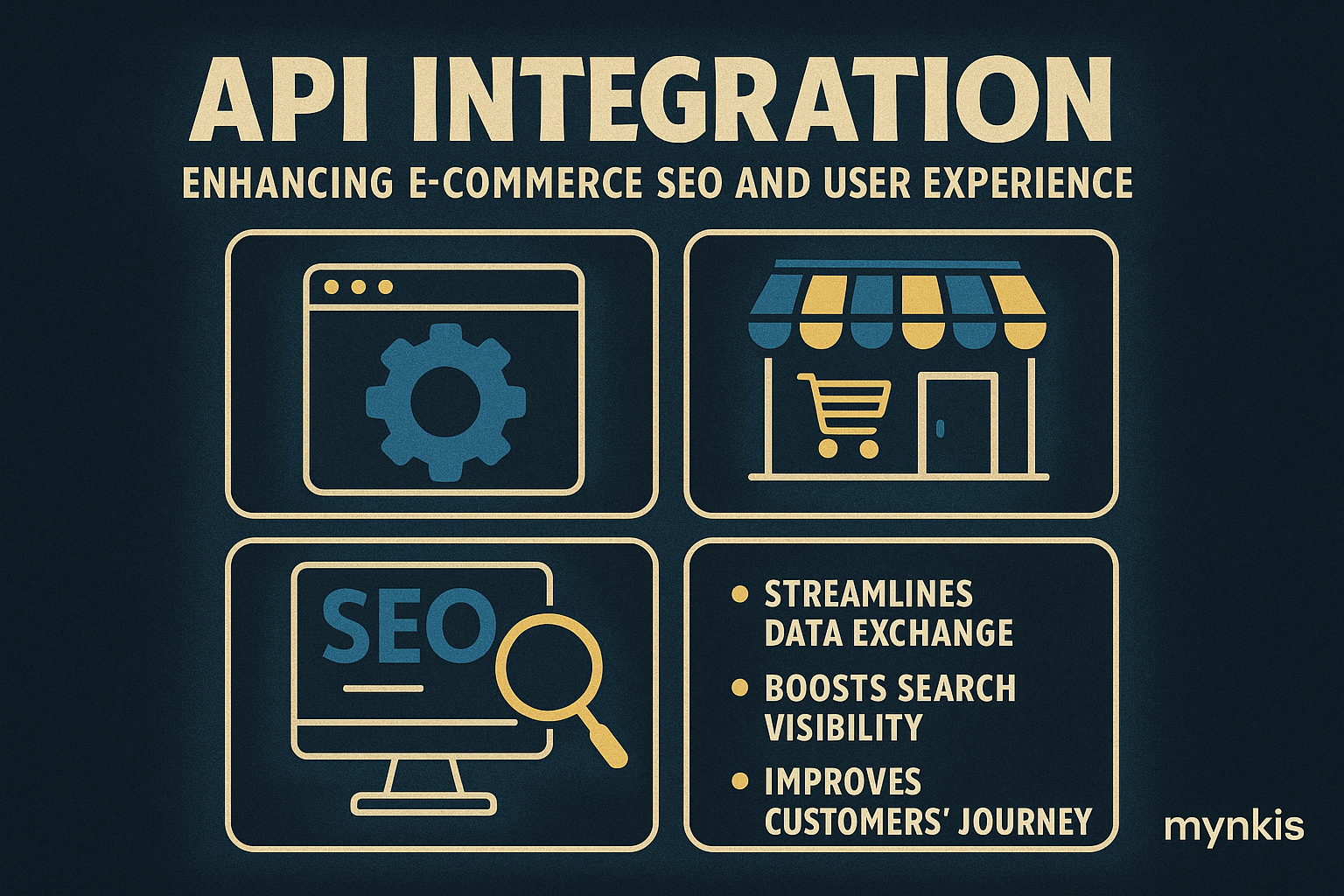Schedule a Demo
In my work with numerous e-commerce platforms, I've seen firsthand how integrating APIs can revolutionize the way retailers operate. APIs, or Application Programming Interfaces, are the invisible workhorses that allow different software systems to communicate effortlessly. For retailers looking to bolster their online stores, the seamless integration of APIs isn't just a luxury—it's a necessity.
Imagine your online store being like a prime spot on a vibrant California street, drawing customers in with its allure and convenience. Integrating SEO APIs into your website development can turn that vision into reality. By tapping into these APIs, you gather invaluable insights on keyword performance, search trends, and user behavior, allowing you to tailor your SEO strategies with precision.
Effective inventory management can make or break an e-commerce operation. Utilizing inventory management APIs ensures real-time updates across your sales channels, which is critical for maintaining accuracy and preventing over-selling. Not only does this create a smoother customer experience, it also means you spend less time manually managing stock and more time on strategic growth initiatives.
The checkout process is where many retailers see their highest drop-off rates. Payment gateway APIs help streamline this critical step, integrating diverse payment options and ensuring a secure transaction experience. This not only improves user trust but also increases conversion rates, something I've observed dramatically in sites leveraging such integrations.
Personalization can be a game-changer in retail, and APIs are at the heart of this transformation. By integrating user data APIs, retailers can create tailored shopping experiences based on customer's previous interactions, purchase history, and even browsing behavior. Such capabilities have been shown to boost engagement and, ultimately, sales.
Shipping is a major touchpoint in the customer journey. Integrating shipping APIs can significantly improve efficiency by offering real-time shipping rates, tracking options, and carrier selection, all of which contribute to faster and more reliable order fulfillment. I've noticed companies leveraging these APIs tend to report higher customer satisfaction scores.
Social media integration is vital for brand visibility. Utilizing social media APIs allows your e-commerce site to sync effortlessly with platforms like Instagram and Facebook, facilitating product tagging, automatic posting, and community engagement. This seamless connection keeps your brand in the consumer's social circle, amplifying your reach and marketing potential.
In the realm of online shopping, data security cannot be overstated. APIs designed for security, such as those providing encryption services or secure data transmission protocols, play a crucial role. By integrating these with your development process, you bolster your site's protection against cyber threats, making sure that customer data remains safe and confidential.
Increasing your website's visibility organically reduces reliance on costly advertising. By leveraging SEO APIs, retailers can automatically optimize their content and site architecture to align with current search engine algorithms. This results in improved keyword rankings, site traffic, and overall visibility, which I've seen translate into sustained organic growth for numerous businesses.
While the benefits of API integration are undeniable, it's important to approach this technology thoughtfully. Compatibility issues between different systems can pose challenges, and retailers must ensure their chosen APIs can indeed communicate effectively. Additionally, the initial setup and ongoing maintenance can require a significant investment of time and expertise, although the long-term payoffs justify this commitment.
Content is king in the digital world, and a robust content management system (CMS) is essential for retailers. By integrating content APIs, retailers can dynamically update their site with fresh product listings, blog posts, and marketing materials. This agility in content management supports SEO efforts and ensures that your site remains up-to-date and engaging.
With e-commerce landscapes constantly evolving, integrating APIs into your website development ensures your platform remains relevant and adaptable. Whether it's emerging trends in SEO, new payment methods, or additional social media platforms, APIs allow for seamless incorporation of these elements without overhauling your entire system. This future-proofing is critical for long-term success in a dynamic market.
Real-world examples often speak louder than theoretical benefits. I recently worked with a retailer who integrated a comprehensive suite of APIs, transforming their SEO approach. As a result, they saw a 30% increase in organic traffic within six months. Another client focused on shipping APIs, reducing their delivery times by 25%, dramatically improving customer satisfaction and repeat business.
Begin by identifying the areas of your e-commerce operation that could benefit most from automation and improved integration. Collaborate with a development team experienced in API technology to map out your strategy. Remember, the key to success with APIs is to integrate them strategically, ensuring they align with your overall business objectives and technical infrastructure.
